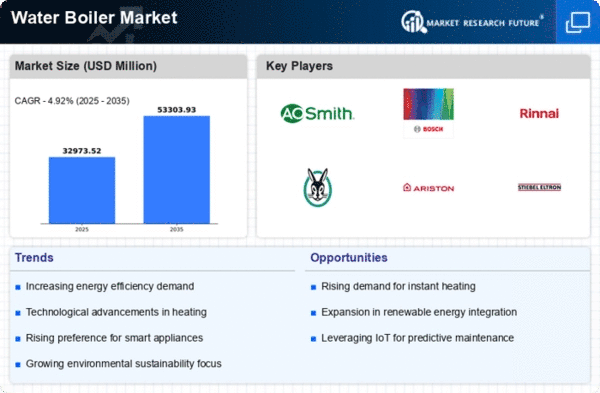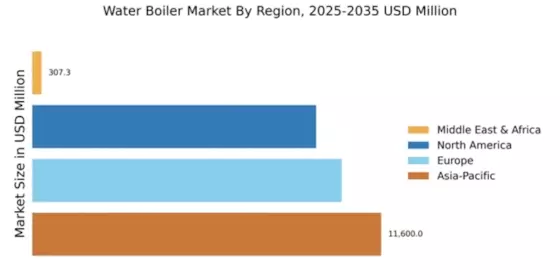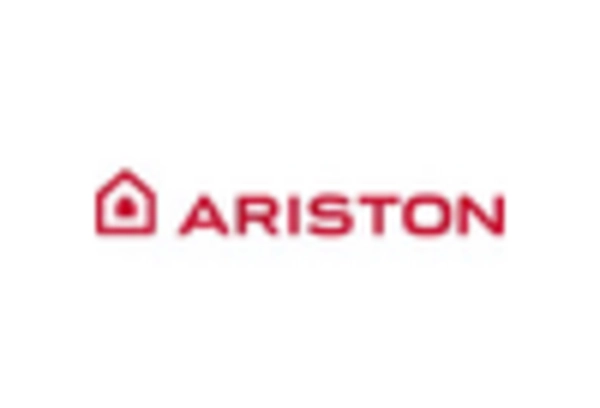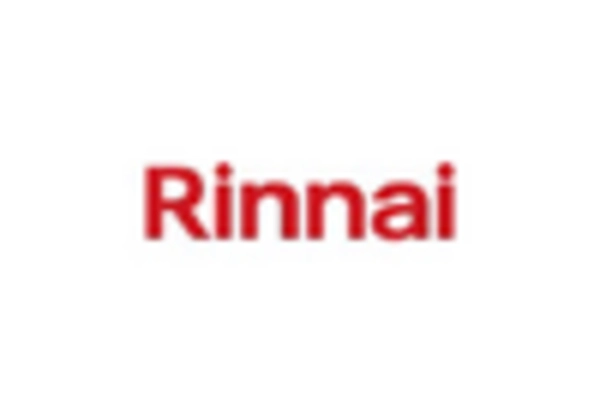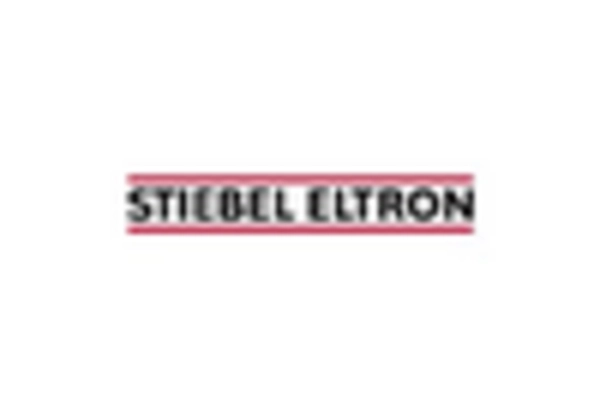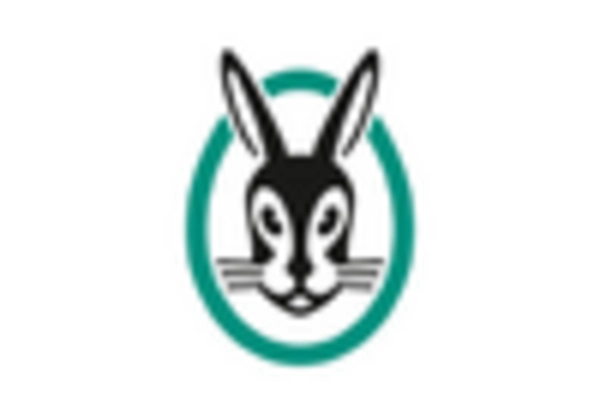Market Growth Projections
The Global Water Boiler Market Industry is projected to experience robust growth in the coming years. With an anticipated market value of 31.4 USD Billion in 2024, the industry is set to expand significantly, driven by various factors such as technological advancements and increasing energy efficiency demands. By 2035, the market is expected to reach 53.0 USD Billion, reflecting a CAGR of 4.87% from 2025 to 2035. These projections indicate a favorable environment for investment and innovation within the sector, as stakeholders recognize the potential for sustained growth and profitability.
Technological Advancements
Technological advancements play a crucial role in shaping the Global Water Boiler Market Industry. Innovations such as smart water boilers equipped with IoT capabilities allow users to monitor and control their systems remotely. These technologies enhance user convenience and optimize energy usage, contributing to overall efficiency. As the market evolves, manufacturers are increasingly integrating advanced features, such as self-diagnostic capabilities and adaptive heating functions. This trend is expected to bolster market growth, with projections indicating a rise to 53.0 USD Billion by 2035, reflecting the industry's commitment to modernization and consumer satisfaction.
Rising Demand for Energy Efficiency
The Global Water Boiler Market Industry experiences a notable increase in demand for energy-efficient solutions. As consumers and businesses alike seek to reduce energy consumption and lower utility bills, manufacturers are responding with innovative designs that enhance efficiency. This trend is particularly evident in developed regions, where regulations promote energy-saving technologies. For instance, the market is projected to reach 31.4 USD Billion in 2024, driven by the adoption of high-efficiency water boilers. This shift not only aligns with global sustainability goals but also supports the industry's growth trajectory.
Increased Awareness of Water Conservation
The Global Water Boiler Market Industry is witnessing a surge in awareness regarding water conservation. As global water scarcity becomes a pressing issue, consumers are increasingly seeking solutions that minimize water usage while maintaining efficiency. This heightened awareness drives demand for water boilers designed with conservation features, such as low-flow systems and advanced heating technologies. Manufacturers are responding by developing products that not only meet performance standards but also address environmental concerns. This trend is likely to contribute to the market's growth, with expectations of reaching 53.0 USD Billion by 2035, as consumers prioritize sustainable choices.
Regulatory Support for Sustainable Practices
Regulatory frameworks promoting sustainable practices are pivotal in the Global Water Boiler Market Industry. Governments worldwide are implementing stringent energy efficiency standards and incentivizing the adoption of eco-friendly technologies. Such regulations not only encourage manufacturers to innovate but also drive consumers towards energy-efficient water heating solutions. The increasing emphasis on reducing carbon footprints aligns with global sustainability initiatives, further propelling market growth. As a result, the industry is poised for expansion, with projections indicating a market value of 31.4 USD Billion in 2024, reflecting the positive impact of regulatory support.
Growing Residential and Commercial Construction
The Global Water Boiler Market Industry is significantly influenced by the expansion of residential and commercial construction activities. As urbanization accelerates, the demand for reliable hot water systems in new buildings increases. This trend is particularly pronounced in emerging economies, where infrastructure development is a priority. The construction sector's growth not only drives the demand for water boilers but also encourages manufacturers to innovate and offer tailored solutions. The market's expansion is anticipated to follow a CAGR of 4.87% from 2025 to 2035, underscoring the industry's responsiveness to evolving construction needs.


